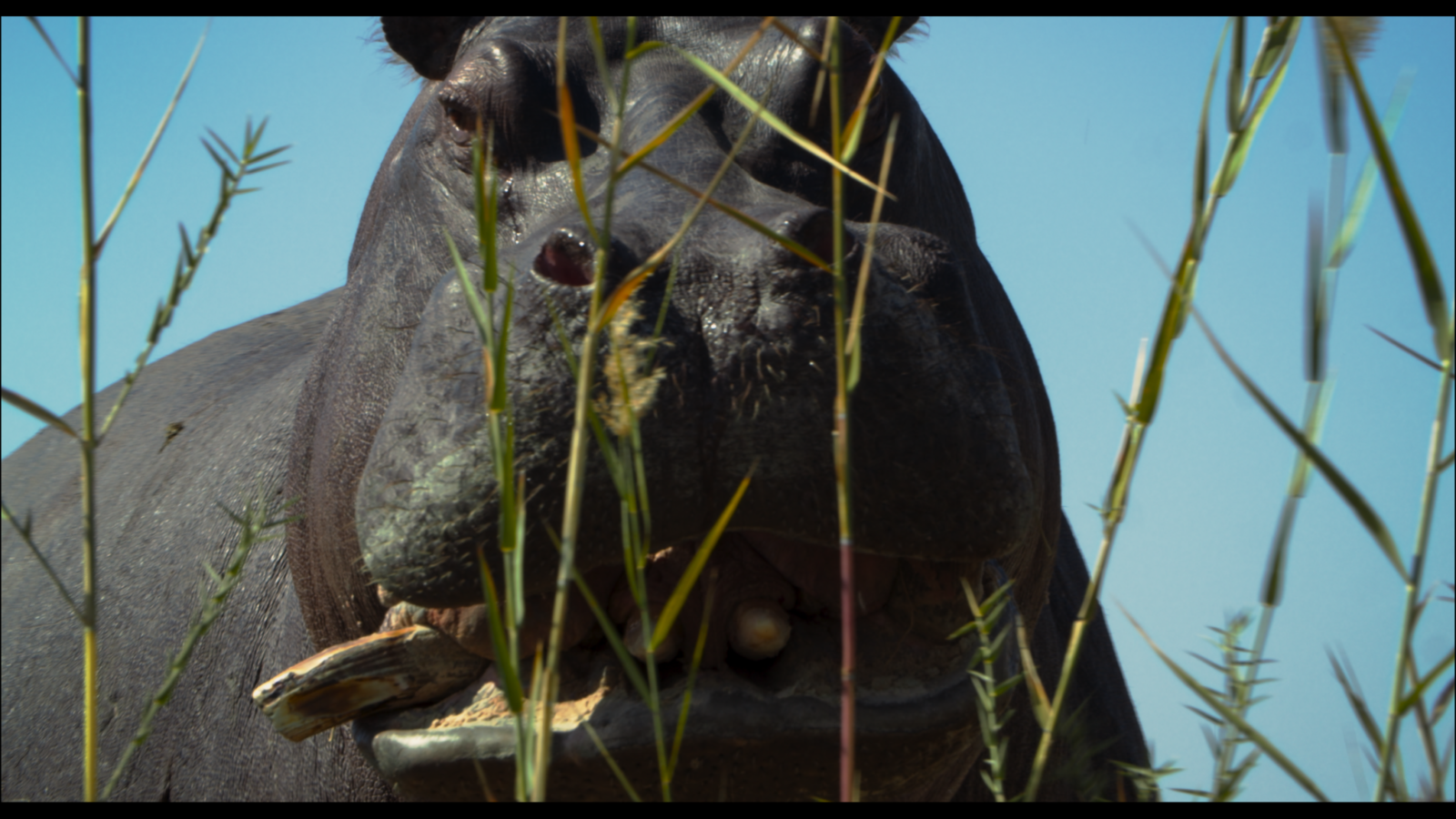Pepe is difficult to put into words. The enigmatic film is an example of brilliant filmmaking, but fumbles in its esoterica. In the broadest sense of the word, Pepe is a film about the final thoughts of a real Colombian hippopotamus as he gains the ability to narrate his entire life. It is also about language, colonialism, gender politics, folk mysticism, existentialism and sometimes hippopotamus biology.
The story goes that Pablo Escobar imported several exotic animals to his Hacienda Nápoles in the 1980s. When he was killed, four remaining hippos began to migrate and populate along the Magdalena River. By 2023, the hippopotamus population had grown to about 169. Pepe follows this story, starting with the hippopotamus parents in 1979 in South West Africa (now Namibia) and ending with Pepe’s murder in 2009. ‘Murder’ is a key word as Pepe prioritizes granting agency to the hippopotamus in describing its emotional journey.
When Pepe is banished from his herd (alpha male hippos banish all born males), he tells the audience: “This is how I realized there is a hierarchy – first with the arrival of Pablito [Escobar]. And when I left the herd, my story couldn’t be told until the time came their story.” Director Nelson Carlo De Los Santos Arias uses Pepe’s voice to explore language in a postcolonial context. Pepe, a hippopotamus, speaks German, Spanish and Afrikaans as he wonders how he can speak and understands that these sounds not be. normal for a hippopotamus. He realizes he’s a subject in a story he can’t even tell, because he’s actually a hippopotamus (reminiscent of how Paul Gilroy’s 1993 book The Black Atlantic Ocean connects the transatlantic slave trade with the double consciousness within black Americans reconciling their identity on a daily basis).

At the Press conference Berlinale 2024 for PepeDe Los Santos Arias was asked how he conceptualized his film. He replied that the current situation about the Colombian government and the hippos does not interest him: “What I was interested in was all this symbolism.” The director is in a precarious position when the current socio-political reality of the Colombian hippos is not explicitly acknowledged, but this symbolism is clearly evident when looking at the formal elements of the film.
Breathtaking cinematography and sound design shape the film: omniscient overhead shots of the Magdalena River; a barrage of soldiers’ bullets transforming into an eclectic drum loop. Yet a critical problem arises when the center of subjectivity shifts from Pepe to a couple, played by Jorge Puntillón García and Sor María Ríos, and their human melodrama. Candelario, a fisherman, becomes obsessed with a (then) unknown animal in the river and confides in his wife Betania, who accuses him of cheating and using the river animal as an excuse to avoid confrontation. Within African folklore, hippopotamus attacks indicate that a spouse is unfaithful. But if a film is so determined to let a philosophizing hippopotamus speak, shouldn’t it stay true to that unique motif? By decentering Pepe’s articulate revelations, the imagination stops within the film’s magical realism. Stories about animal subjectivity can reveal many otherwise hidden absurdities of our society.

Pepe is unlike most films released in recent history, especially because it comes from Dominican filmmakers committed to combating cultural exclusion from international conversations. De Los Santos Arias is a filmmaker I admire for his political intentionality and poetic sensitivity; he explores what it means to be a Caribbean filmmaker in an industry that barely recognizes his region. In his final moments, Pepe says, “What is authentic and false, what is serious and playful, the real act and the shadow of my life. A baroque mixture, exaggerated, opaque, heterogeneous… difficult words that I will never understand how they got here.”
Pepe is a hippopotamus born to South West African parents who were forcibly moved from their native country to Columbia. Stifled by a language and culture that was not their own, these hippos adapted to create a sustainable habitat. However, as the hippopotamus population grew, the ecological risk and danger to humans led authorities to hunt this ‘invasive species’. Pepe’s Martyrdom (similar to that of Harambe in 2016) attracted a lot of international attention for awareness and preservation of animal rights. Hippos are considered a vulnerable species with a… world population of approximately 130,000.
It is disarming how fascinatingly beautiful hippos there are Pepebut the truth is that people are often too caught up in their own stories to notice.

Pepe is currently available to stream on Mubi.













Leave a Reply